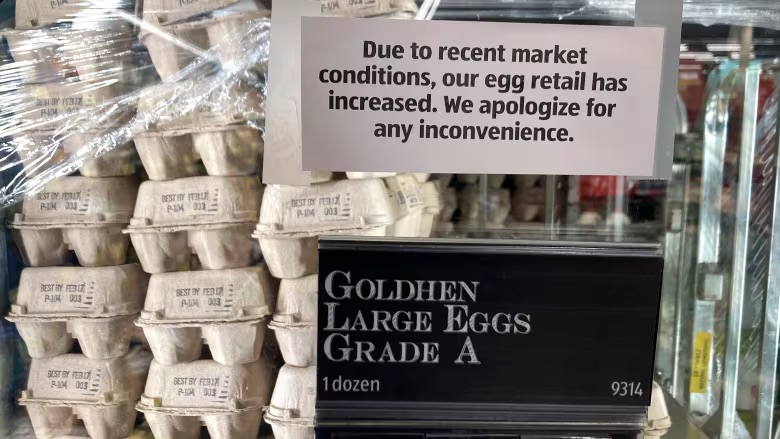 Register
Sign
In
Register
Sign
In
 Register
Sign
In
Register
Sign
In
CANADA
News


John Moulder
Ottawa
November 18, 2024
It's been a long time since economic data in Canada showed
very much promise. The last 18 months have been defined by a cost of living crisis and a slowing
economy.
But a handful of economic indicators give us some hope for 2024.
Inflation has slowed dramatically, and the economy didn't actually slip into recession.
"We've just had one of the biggest declines in inflation that we've ever seen without a full-on
recession. That's great news," said Douglas Porter, chief economist at BMO Capital Markets.
"Now, can we get the rest of the way down to two per cent? Without much pain? That's still the big
question for 2024."
Last year was dominated by the double whammy of sharply rising interest rates and stubbornly high
prices.
2024 should finally see some relief on both fronts. But it will pose new challenges as well.
The Bank of Canada has been trying to get inflation back to that one- to three-per-cent window
since price growth kicked off in 2021. Forecasts show CPI should be firmly within that band in the
first three months of the year.
Bank of Canada Governor Tiff Macklem spent most of his year-end news conference studiously
avoiding anything that could be seen as a declaration of victory.
But he certainly came close with his financial lingo.

"The excess demand that drove prices higher over the past two
years is now gone, as higher interest rates and tighter global financial conditions have helped the
economy rebalance," he said on Dec. 15.
But as one problem fades, another becomes more vivid.
The Canadian economy slowed throughout the year as higher interest rates bit into households and
businesses.
For months, the economy has stagnated. It hasn't grown at all in two quarters. Heading into 2024,
the concern shifts from inflation to the potential for a recession.
"With the cost of living still increasing too quickly, and with growth subdued, the next two to
three quarters will be difficult for many," said Macklem.
What will happen with the GDP?
Canada's economy was bolstered by historic population growth last year. But when you adjust
economic growth on a per capita basis, the anemic GDP numbers look even worse.
"Canadian GDP has already declined for five consecutive quarters on a per-capita basis with Q4
likely to stretch that run to 6," wrote RBC economists Nathan Janzen and Claire Fan.
Meantime, the economy still hasn't absorbed the full impact of all those rate hikes. The Bank of
Canada says that usually takes about 18 months.
The central bank's first hike came in March of 2022. That was 21 months ago. Economists such as
Royce Mendes, managing director and head of macro strategy at Desjardins Capital, say more pain is
coming.
"There's a wall of mortgage renewals that this economy is about to hit. and to get going into
2025, it's only going to get worse," he told CBC News.
Mortgage rates to fall?
The Canada Mortgage and Housing Corporation says only about 300,000 homeowners have renewed their
mortgages at these new higher rates.
Over the next two years, another 2.2 million Canadian households will be hit with significantly
higher rates.
Mendes says that statistic alone should help spur the Bank of Canada on to start cutting interest
rates in the first half of this year.
"While the Bank of Canada will probably be lowering rates in 2024, it might still be lowering
rates even further and 2025 to help offset some of the pain that will be coming from those mortgage
renewals," said Mendes.
The C.D. Howe institute surveyed its council of monetary policy experts in December. They were
asked when the central bank should start cutting rates and where they think the bank's key overnight
lending rate will be at the end of 2024.
The members differ in their approach. Some say the central bank should start cutting as early as
the January meeting. Most recommend the bank get at least one cut under its belt by June.
This site was created with the Nicepage